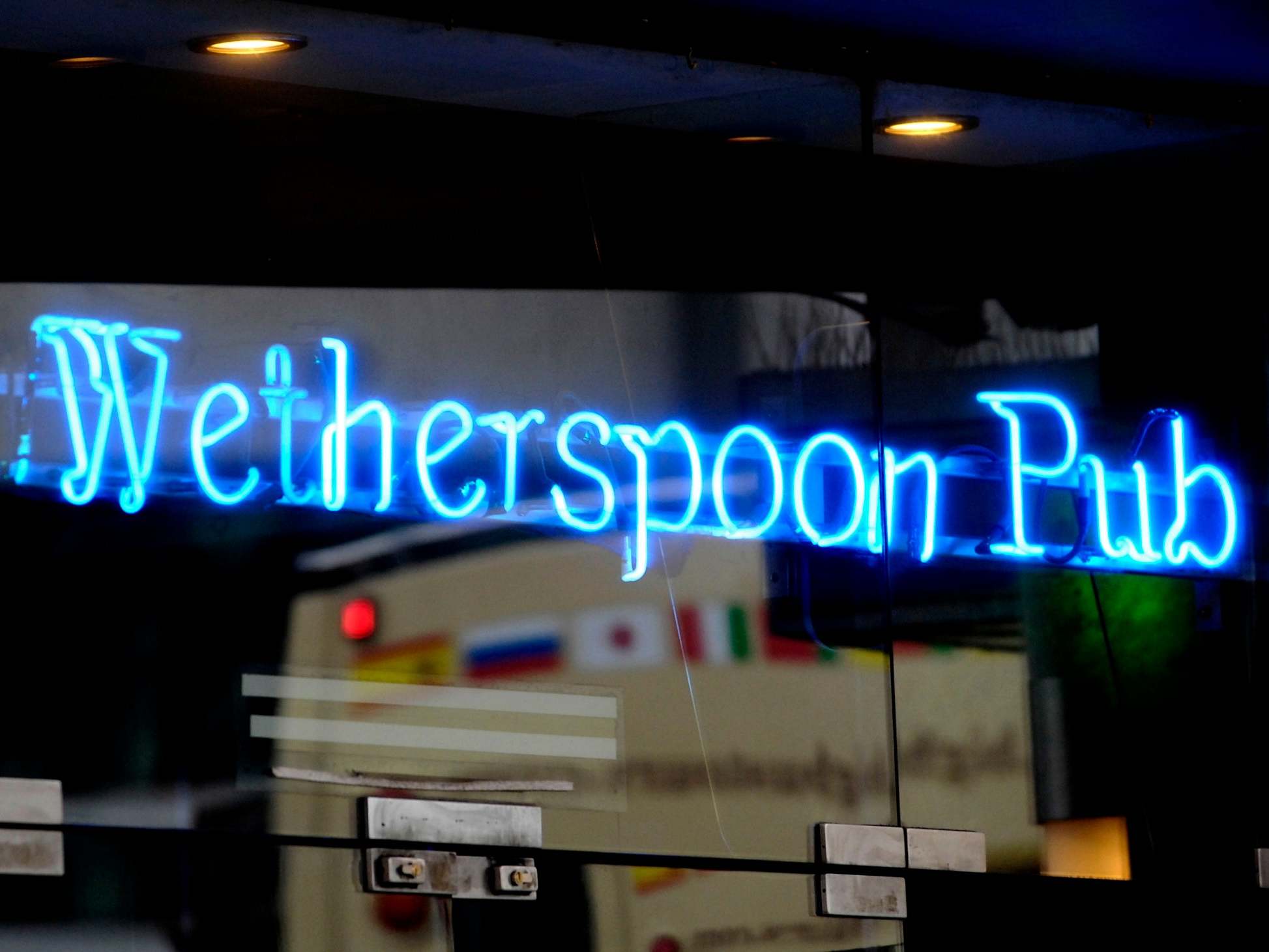Wetherspoon has been helped by Sunak’s eat out scheme – but will diners stick around when it’s gone?
There’s an awful lot riding on whether the initiative becomes habit-forming, writes James Moore


Credit where it’s due to Tim Martin: the mouth-almighty chair of pub chain JD Wetherspoon put the relevant part of his company’s latest update – concerning current trading, property and the group’s financial position – right at the top of the windy, near-4,000-word missive.
There was the de rigueur whinge about VAT, a complaint about the “unfair” treatment suffered by the pub trade in comparison with supermarkets, and a plea in the middle of the useful stuff for more help on that front, which I don’t propose to address because you’ve heard it all before.
But the layout meant it was easy enough to take in the sensible stuff while ignoring the more than 3,000 words of Timbo ranting about the media (they’re mean and they’re misrepresenting me), lockdowns (I’ve found some people that don’t like them and here’s a Sky News Australia interview transcript to prove it), and Sweden. Why Sweden? Arch-Brexiteer Martin has found some Europeans he’s a fan of because they’re not so keen on lockdowns either. So, Absolut Vodka in the pubs?
The sensible stuff is worthy of some analysis, particularly regarding Rishi Sunak’s gimmicky and highly conditional eat out to help out scheme. You may recall that it offers a 50 per cent discount on food and non-alcoholic drinks to those eating out in the early part of the week, up to a maximum of a tenner per diner at (pause for breath) participating outlets.
I was fairly sceptical when this was launched, but this may have been misplaced. It does seem to have provided Wetherspoon’s with a shot in the arm, and presumably other outlets too.
Food and bar sales for the 44 days to 16 August at the chain’s outlets that had been open at least a year were down by 16.9 per cent, but Martin talked about a “rapid acceleration recently”, citing the scheme as a reason, along with the creation of additional outside seating.
Proving he can do magnanimity, he paid a compliment to “landlords, landowners and local and licensing authorities” for being “extremely flexible in accommodating extra outside space”.
The problem, of course, is that the scheme came with an expiration date and it’s fast approaching, along with autumnal weather, the traditional, non-Covid-related coughs and sneezes, and maybe a second wave of the coronavirus as well.
The economic rationale behind the Sunak subsidy is clear: if you could just get people to set aside their understandable concerns about venturing out, maybe it’ll be habit forming.
If people do carry on eating out and this helps to keep at least some of the participating outlets in business, and their staff in gainful employment, then I’ll happily take back my earlier criticism. The scheme will be a score for Sunak.
But JD Wetherspoon says it expects “a period of more subdued sales” once the eat out scheme ends.
It insists that the business is “in a sound financial position”. Even so, it has net debt of £825m on its books, and has received a waiver of its banking covenants for April and July 2020. It’s about to ask its lenders to do the same for the current financial year, and it raised £141m on the stock market plus £48.3m in government loans. A loss for the year is expected.
What that tells you is that there’s an awful lot riding on consumers keeping up the habit after taking advantage of Sunak’s largesse.
Join our commenting forum
Join thought-provoking conversations, follow other Independent readers and see their replies
Comments